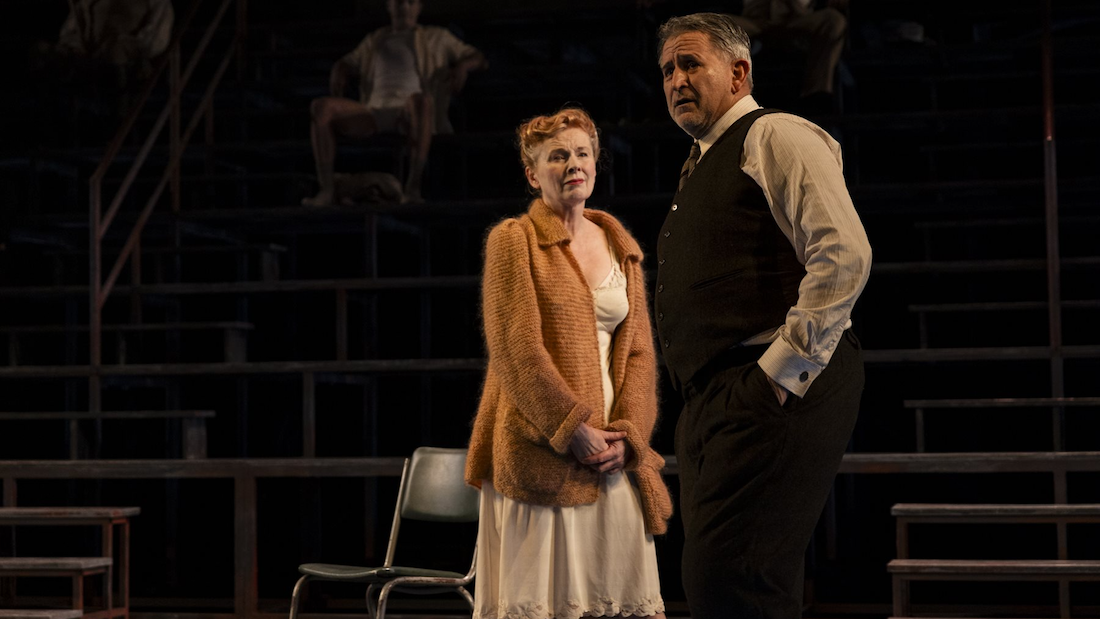
Review: Death of a Salesman at Crown Theatre
Death of a Salesman at Crown Theatre
Saturday, August 17, 2024
Seventy-five years after its premiere, Arthur Miller’s Death of a Salesman remains thought-provoking and haunting.
For this production of the Pulitzer Prize-winning play, guests are greeted by a set of 1940s-inspired bleachers which tower over the length of the Crown Theatre stage. Entering as protagonist Willy Loman, Anthony LaPaglia’s staggered footsteps and grumbling perfectly mimicked a day of slaving to the system, as if finishing a twelve-hour shift before starting the show.
With minimal props and detailed dialogue, the acting and story take centre stage, but the set left a key theme looming over the show. The sparce and rusted seating looking down on Willy and his son Biff (Josh Helman) loomed over his failed football dreams—the gaps between benches like the cracks of the American Dream he fell through.
While bolstered by added delay effects, scenes featuring Willy’s deceased brother Ben (Anthony Phelan) were made all the more eerie by the actor’s wild eyes and weathered voice, and his lines were well paced to distinguish between real and imagined exchanges.
As the show progressed, LaPaglia’s engrossment with the mentally declining character was evident. His delivery of argumentative scenes in between bumbling delusions made his trademark authoritative demeanour more impactful as his raspy voice echoed through the theatre. Helman’s similar demeanour also had to compete with vulnerabilities and his shifts between moods at times took the audience along for the ride.
Through a more modern lens, the family dynamic between Willy, Linda (Alison Whyte), Biff and Happy (Ben O’Toole) quickly stood out. Flashbacks to the sons’ mindless admiration of their patriarchal father, rewarded by pedestaling Biff’s gridiron skills, regardless of his troublemaking, reflect a mistake still being made in our society.
Likewise, Whyte’s dedicated portrayal of Willy’s wife Linda captures the character’s somewhat unhealthy dedication to her husband, such as standing by him or even fiercely defending him despite him constantly interrupting her. In tense moments, her quivering voice visibly moved her whole body, illustrating the pressure felt from being subject to such a patriarchal dynamic.
Brilliant individual performances like this are only made possible with a strong production team creating the world in which the actors can thrive. From the costumes, to the lighting, to the portrayal of characters, there is a tangible sense of respect and admiration for the text that makes this play as convincing as it is compelling. A work from the past that is worth reflecting on, Death of a Salesman remains an engrossing story of disenchantment.
AJ MAHAR
